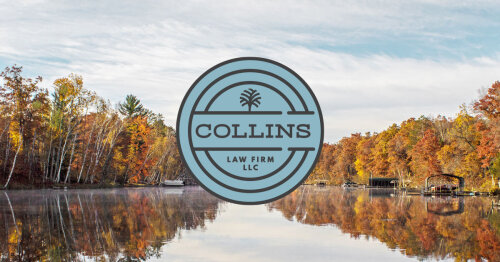Best New Business Formation Lawyers in Wisconsin
Share your needs with us, get contacted by law firms.
Free. Takes 2 min.
Or refine your search by selecting a city:
List of the best lawyers in Wisconsin, United States
About New Business Formation Law in Wisconsin, United States
New business formation law in Wisconsin covers the entire legal process of starting a business in the state. This includes choosing a business structure, registering the entity with the state, acquiring necessary licenses or permits, understanding tax obligations, and ensuring compliance with both state and federal regulations. Whether you are launching a small local shop or a growing tech startup, Wisconsin has specific laws to guide the formation, operation, and legal responsibilities of new businesses. These laws are there to ensure that businesses operate transparently, responsibly, and within the legal framework.
Why You May Need a Lawyer
Starting a business can be exciting, but it involves numerous legal decisions that can impact the future of your company. Common situations where legal help is valuable include:
- Deciding which business structure is best for your needs, such as LLC, corporation, partnership, or sole proprietorship.
- Drafting or reviewing foundational documents like Articles of Organization, Operating Agreements, or Bylaws.
- Ensuring compliance with state and federal regulations concerning business operations, employees, taxes, and reporting.
- Registering trade names, trademarks, or copyrights to protect your intellectual property.
- Navigating local zoning, licensing, or permit requirements that may apply to your business type or location.
- Preparing partnership, shareholder, or investor agreements to define roles and responsibilities clearly.
- Anticipating and avoiding common legal pitfalls that could result in financial or legal liabilities later.
Legal assistance at the early stages can minimize costly mistakes and position your business for long-term success.
Local Laws Overview
Wisconsin law provides several options for business structures, each with distinct legal and tax implications. Key requirements and regulations include:
- Business Registration: All businesses must file with the Wisconsin Department of Financial Institutions (DFI), usually through online forms. Sole proprietors and partnerships using a business name file for a trade name, while LLCs and corporations file entity-specific forms.
- Business Structures: Wisconsin recognizes LLCs, corporations (including S corporations), partnerships, and sole proprietorships. Each one has specific formation documents, annual reporting, and fee requirements.
- Tax Registration: State law requires businesses to register with the Wisconsin Department of Revenue for sales tax, employer’s withholding tax, and some excise taxes. Federal employer identification numbers (EIN) may also be necessary.
- Licensing and Permits: Depending on your business type and where you operate, you might need state, county, or city licenses or permits. These could apply to food businesses, construction, childcare, and other regulated fields.
- Employment Law Compliance: Businesses with employees must comply with Wisconsin employment laws, including worker’s compensation, unemployment insurance, and anti-discrimination statutes.
- Annual Reporting: Certain entities such as LLCs and corporations must file annual reports and pay recurring fees to remain in good standing.
- Local Zoning: Municipalities in Wisconsin enforce zoning codes that can impact where you operate your business or what type of operations are allowed at a given location.
Understanding and following these laws helps ensure your business operates legally and avoids unnecessary penalties.
Frequently Asked Questions
What are the most common business structures in Wisconsin?
The most common business structures in Wisconsin are sole proprietorships, partnerships, limited liability companies (LLCs), and corporations. Each of these has unique legal, tax, and operational implications.
Do I need to register my business with the state?
Yes, most businesses need to register with the Wisconsin Department of Financial Institutions, especially if forming an LLC, corporation, or partnership, or if using a trade name different from your legal name.
How do I obtain an EIN?
An Employer Identification Number (EIN) is obtained through the Internal Revenue Service (IRS). This can be done online and is free. Most businesses, including LLCs and corporations, need an EIN for tax purposes.
Are there any special permits or licenses required?
Yes, depending on your industry and location, you may need local, state, or even federal licenses or permits. The Wisconsin Department of Revenue and your local city or county office can help you identify the requirements.
What legal documents are needed to start an LLC?
To start an LLC in Wisconsin, you must file Articles of Organization with the Department of Financial Institutions and create an Operating Agreement, although the latter is not required by law, it is highly recommended.
What are annual report requirements for Wisconsin businesses?
LLCs and corporations must file annual reports and pay associated fees to the Department of Financial Institutions to maintain good standing.
How do I protect my business name?
Register your business name with the state, and consider obtaining a federal or state trademark for additional legal protection from infringement.
Is a business lawyer required to form a business?
A lawyer is not required by law, but hiring one is beneficial to ensure proper structuring, documentation, and compliance with all regulations, especially for complex business plans or partnerships.
What are typical costs involved in forming a business?
Costs can include state filing fees, licensing fees, legal fees for document preparation or consultation, and ongoing costs such as annual reporting and taxes.
Where can I get help with business planning in Wisconsin?
There are numerous state-sponsored resources, local Small Business Development Centers, and private attorneys who can help with planning, registration, and compliance.
Additional Resources
Here are several resources and organizations that offer valuable information, support, and legal guidance for new business formation in Wisconsin:
- Wisconsin Department of Financial Institutions (DFI) - Handles business registrations, filings, and annual reports.
- Wisconsin Department of Revenue - Offers tax registration, licensing, and compliance information.
- Wisconsin Economic Development Corporation (WEDC) - Provides resources and support for entrepreneurs and small businesses.
- U.S. Small Business Administration (SBA) - Wisconsin District Office - Offers counseling, loans, and educational events.
- Wisconsin Small Business Development Center (SBDC) - Free or low-cost guidance on business planning and formation.
- Local Chambers of Commerce - Support and networking for new businesses in your area.
Next Steps
If you are considering forming a new business in Wisconsin, begin by researching your preferred business structure and gathering necessary documentation. Review the registration and licensing requirements specific to your type of business and location. Consult the recommended resources for additional guidance.
If you are uncertain about any legal requirements, have a complex partnership arrangement, or want to ensure your business is set up for long-term success, consider consulting a qualified business attorney in Wisconsin. A lawyer can review your specific situation, help you evaluate the best entity choice, prepare and file necessary documents, and assist with contracts or agreements.
Taking these steps will help you launch your business legally, protect your personal and business interests, and set the stage for future growth and compliance.
Lawzana helps you find the best lawyers and law firms in Wisconsin through a curated and pre-screened list of qualified legal professionals. Our platform offers rankings and detailed profiles of attorneys and law firms, allowing you to compare based on practice areas, including New Business Formation, experience, and client feedback.
Each profile includes a description of the firm's areas of practice, client reviews, team members and partners, year of establishment, spoken languages, office locations, contact information, social media presence, and any published articles or resources. Most firms on our platform speak English and are experienced in both local and international legal matters.
Get a quote from top-rated law firms in Wisconsin, United States — quickly, securely, and without unnecessary hassle.
Disclaimer:
The information provided on this page is for general informational purposes only and does not constitute legal advice. While we strive to ensure the accuracy and relevance of the content, legal information may change over time, and interpretations of the law can vary. You should always consult with a qualified legal professional for advice specific to your situation.
We disclaim all liability for actions taken or not taken based on the content of this page. If you believe any information is incorrect or outdated, please contact us, and we will review and update it where appropriate.
Browse new business formation law firms by city in Wisconsin
Refine your search by selecting a city.










